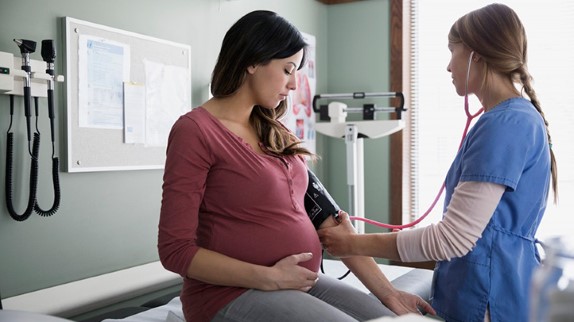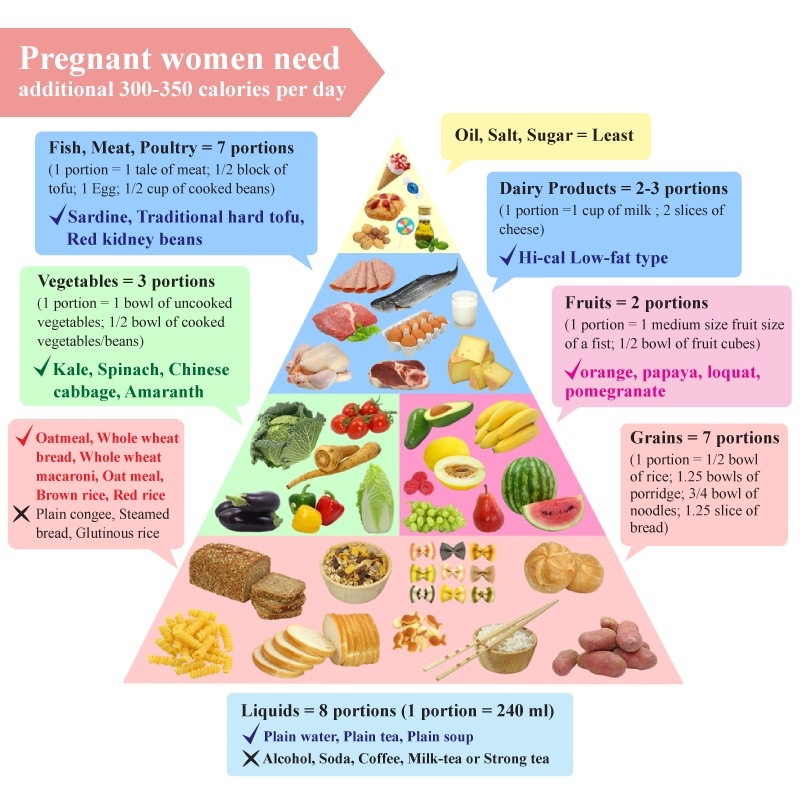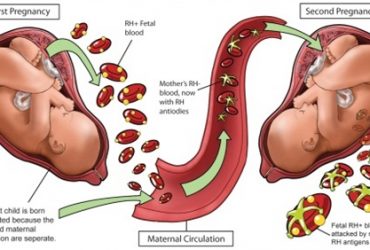Please refer also to the leaflet of (Normal Pregnancy)
Timing of Pregnancy Care visits.
- As soon as possible in early pregnancy, then
- Every 4 weeks till the 8th month (32 weeks), or every 2 weeks in case of any associated problem,
- Then, twice monthly during the 8th month (32-36 weeks), then
- Weekly till delivery.

The standard Antenatal Care includes:
- Basic blood tests.
- Clinical examination of chest, heart and breasts.
- At each visit: urine testing + ultrasonography + checking blood pressure, body weight.
- Another CBC and Blood Glucose test at 24 weeks (± this may need to be repeated at 32 weeks).
The Basic blood tests.
- Complete Blood Count (CBC).
- Blood grouping.
- Urine analysis + culture.
- Liver functions including checking for viral hepatitis B&C.
- Immune state to Toxoplasmosis and German Measles (Rubella).
Normal Symptoms in pregnancy.
- Mild morning nausea (with occasional vomiting), especially during the first 3 months.
- Change of appetite.
- Feeling lazy or tired.
- Mild memory loss and difficulty to concentrate.
- Frequently passing urine, with no associated pain.
- Some simple vaginal discharge (with no itching, bad odor or skin changes).
- In the second trimester, some mild muscle cramps in the sides of your tummy, especially on moving in bed or standing up.
- Fetal kicks usually start to be perceived at 20 weeks and do not get regular till 24-28 weeks.
- Some mild watery discharge per nipple during the last trimester.

Symptoms which should be reported to the doctor.
- Vaginal bleeding.
- Excessive, offensive or itching vaginal discharge.
- Lower abdominal cramps in the midline (similar to period cramps).
- Pain on passing urine.
- Fever.
- Not feeling the fetal kicks after 24 weeks.
- Repeated or excessive vomiting.
- Excessive leg edema.
- Breaking your waters (rupture of membranes), which feels like a sudden gush of warm clear fluid per vagina.
Diet and body weight.
- Strict Diet to lose weight is not advisable during pregnancy or immediately post-delivery.
- An average weight lady needs 2500 kCal daily.
- Dietary intake should be divided in small, frequent meals. Care should be taken to avoid recumbency or sleep within 2 hours of the main meals of the day.

- Bodyweight usually increases by 3-5 Kg during the first 4 months, and about 7-12 Kg afterwards. Some ladies may lose some weight during the first trimester.
- You need a glass of full cream milk daily, a meal of fish or canned tuna weekly.
- Make sure to wash your hands thoroughly before and after preparing meals or eating.
 Movement and exercise.
Movement and exercise.
- Use comfortable low-heel shoes, especially as pregnancy advances to avoid back pain.
- Try to rest during the first few weeks.
- Light exercise, such as walking or swimming, is advisable.
- Sexual intercourse is allowed unless the doctor advises differently in your case.
Long distance or prolonged travelling.
- It is best to consult your doctor long enough before travelling.
- Avoid prolonged sitting in the car or airplane for longer than 2 consecutive hours, try to walk around for few minutes every 90-120 minutes.
- Have plenty of fluids during your way, avoid caffeine intake.
- Keep a record of your antenatal care and test results as well as your due date for emergencies.
Best Regards
Dr. Sherif Ahmed Ashoush











